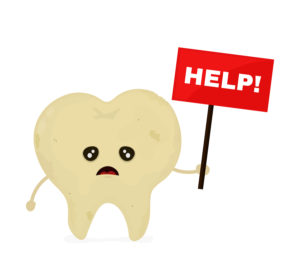Tooth Decay: When is a dental crown recommended?


How can a dental crown benefit me?
Dental crowns are more extensive restorations than fillings. They protect all visible surfaces of tooth from oral debris and bacteria. They strengthen existing tooth structure, too. This means that people who have extensive decay can simultaneously prevent the advancement of decay and protect existing tooth structure with a dental crown.
An oral healthcare provider might also recommend dental crowns for teeth that have been cracked and chipped as well as those affected by substantial tooth wear.
What do dental crowns look like?
Dental crowns are shaped like teeth, except that they have a hollowed center. They can be fabricated from a few types of materials that affect their appearance. Common materials used to produce crowns include metal alloys like gold, silver, and zirconia. Those desiring discreet restorations often choose porcelain or porcelain fused to metal for a more natural looking appearance.
How do I care for dental crowns?
Dental crowns are easy to take care of because you can treat them like natural teeth. You will brush and floss your biological teeth as well as your restorations. Some patients choose to use oral hygiene tools like water irrigators to clean around the base of their restorations.
While dental crowns are very durable, it is important to take precautions to protect your restorations. This means that you should avoid chewing on hard objects like pen caps and ice cubes. You should also receive routine checkups and cleanings to ensure that your teeth and your restorative dental work are in good shape.
For more information about the restorative dental services we offer, call our practice today to reserve time with our dentist.